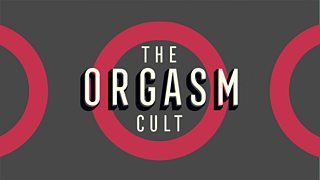Why have businesses become so obsessed with community?
Nastaran Tavakoli-Far, presenter of The Orgasm Cult, looks at why community is such a desirable commodity for businesses.

“We are a community company committed to maximum global impact.”
Were it not for the word "company", this might sound like the mission statement of an international organisation committed to global peace and co-operation, a United Nations or modern-day League of Nations.
The (early) 2020s will belong to the entrepreneurs who can help build authentic communities.Darcy Coolican
“Our mission is to elevate the world’s consciousness,” the statement continues.
If you follow business news you’ll have by now cottoned on that these words are from the 2019 S1 filing of the office leasing company WeWork. “We have built a worldwide platform that supports growth, shared experiences and true success,” says the document, which also led to the company’s demise – but that’s a story for another time.
Aspirations of global consciousness aside, this statement is fascinating for the use of the word "community" right at the top. "Community" seems to be a central concept in the entrepreneurial revolution over the past decade. Everyone just goes on about it. You’ll see this in the proliferation of "community managers" and "heads of community" at start-ups and various for-profit companies.
Airbnb co-founder and CEO Brian Chesky is probably the most high-profile example of this, as he is also the Head of Community for the vacation rental marketplace. In fact Airbnb also used to call itself a community on its Twitter page for a while. And Darcy Coolican of famed Silicon Valley venture capital firm Andreessen Horowitz says, “The (early) 2020s will belong to the entrepreneurs who can help build authentic communities.”
So why are businesses who sell us things so obsessed with community?
Filling a God-shaped hole
Community was one of the most important things people told me about when I was reporting for the recent ����ý Radio 4 podcast The Orgasm Cult, investigating the rise and fall of the wellness company One Taste, which focused on the female orgasm and sold courses around their practice of Orgasmic Meditation. Despite promises of helping women get more in touch with their bodies and teaching men how they could best relate to women, almost everyone I spoke to told me the main thing that made them become so involved in the company was the community.

André Spicer is a professor of Organisational Behaviour at Cass Business School in London, and he isn’t surprised. He’s the co-author of The Wellness Syndrome and Business Bulls*it, and he says that when it comes to wellness companies, community is a huge draw. Indeed wellness/fitness companies such as Crossfit and SoulCycle are as well known for their tight-knit communities as they are for the practices they sell and teach.
He says this is largely connected to the loss of traditional communities as people move around more these days, as well as the loss of religious communities due to increasing secularisation.
“When people face an existential crisis, there are not the ready-made solutions available to them which were provided by religious institutions in the past,” he says. “In many ways, these wellness movements are often really direct responses to secularisation. It's almost filling this kind of God-shaped hole that many people have in their lives.”
More motivated workers
Aside from wellness companies, Dr Spicer says that businesses have focused on building community for a while now, and he pinpoints it to the rise of industrialisation in the 19th century. Building more efficient processes often led to a rise in unhappiness, depression and increased health issues.

“People who run the companies tried to rebuild the sense of community,” he explains, with this often adopting the guise of "company towns". The chocolate maker Cadbury made one such town near in Birmingham in the UK, called Bournville Village. “They built like a kind of model community around the factory with houses and everything. So that was really about building not just housing but building a sense of community around the factories.” And Henry Ford employed sociologists to examine what workers did in and out of work to create a better community at Ford Motors.
While this may all sound benevolent, it ultimately also makes business sense. Studies carried out in the 1920s and 1930s at the Hawthorne Works factory complex in Illinois, USA, looked into all sorts of factors that could impact how well people worked. “They basically discovered, lo and behold, that people are motivated at work by their community of people around them,” Dr Spicer says.
Since then there has been a lot of work within the business world on how to build communities in the workplace, such as how to design teams and how to make people identify with their employers.
Ultimately building communities simply makes business sense: we are more motivated workers when we feel like we are part of a community.
Changing the world
I recall being at the opening party for one of the first WeWork spaces in New York in 2011. It was a sparsely-decorated floor in Manhattan, roughly decked out in plywood and glass and not much else. While the actual space was unremarkable, there was a sense of a party – and not just on the opening night – as well as a sense of purpose and of fun. Cheesy as it may sound, even on that messy and scrappy opening night the place felt like a community, rather than somewhere you rented a desk and went home once you were done. Since then whenever I’ve often sought out co-working spaces, the community aspect is a key thing that will draw me back to one place over another.
Do people really have a deep sense of relationships with each other?Dr André Spicer
Community can draw people to a workplace and make them motivated, and community can even inspire people to help build a company. Community can help give a sort of passion and zeal that can be crucial in the early days of building a venture.
Fast forward to today, and much has been made of what went wrong at WeWork, with the antics of its magnetic, good-looking and somewhat grandiose co-founder Adam Newman being blamed for the company’s demise. André Spicer warns that this can be a problem when work communities are focused around a "charismatic leader". “The danger is that when the leader disappears, the community also disappears,” he says, and he also cites the example of Tony Hsieh, the former CEO of online shoe retailer Zappos who died in 2020. Hsieh poured over US$350m into revitalising an area of Las Vegas into a tech hub that came to be called The Downtown Project, saying he wanted to make Las Vegas “the most community-focused large city in the world”.
While these types of community can be inspiring and energising, Dr Spicer warns about their potential dangers. Speaking of the Downtown Project he says that “there were no boundaries between work and life anymore. There was a lot of fear of your colleagues, or of who your friends were. That's a danger when you bring in this idea of a working community.”
The other main way companies try to build communities is through developing corporate cultures, but he says these can also be inadequate. “You see the vision of the company on the wall. But they're not really reflected on the day-to-day interactions that people have.”
In fact communities tend to arise organically, and no matter how well-intentioned or how brainy the architects, it can be hard to manufacture them. A community requires an identity, together with shared practices and rituals to tie people together. And communities are often really solidified by a shared history. “There might be all these signs around saying, oh, we're a community and all that sort of stuff, but the question is: do people really have a kind of deep sense of relationships with each other?” Dr Spicer asks. “Probably not.”
-
![]()
Listen to The Orgasm Cult
in the search for wellness, how far would you go? Investigating wellness company One Taste and asking big questions about women’s health.

More To Discover
-
![]()
In Business
Series of programmes about the whole world of work
-
![]()
The highs and lows of working from home
How good are we at making work, work?
-
![]()
The Bottom Line: Co-working Spaces
Evan Davis investigates the co-working phenomenon.
-
![]()
The Orgasm Cult
In the search for wellness, how far would you go?




